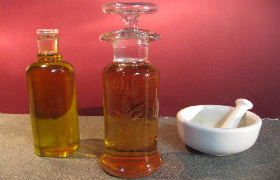We all have cooking oils in our cupboards, pantries, and sitting next to the stove. But how can you tell if they are still good? What about these flavored oils, nut oils, and exotic oils?
Hopefully this guide will give you a little insight to that mystical isle at the grocery store with all those green bottles!
Different cooking oils have different uses in our pantry. Oils like extra virgin olive oil, avocado oil, and nut oils are best used raw because of their very bold flavors. They tend to overtake whatever dish they are in. So they are thought of, more as an ingredient than a vehicle for other flavors.
Vegetable oils like canola oil and basic olive oil (not virgin) are best for day to day hot pan work. You want an oil with a nice light taste and a high smoke point.
Different cooking oils stay fresh for different amounts of time, but you must treat them all well. They should be tightly covered and stored in COOL dark spot (definitely not in that handy cupboard over the stove). The less access they have to the air, the fresher they will stay, and the warmer they stay the faster they degrade. Refrigeration is always a great option.
If unopened, peanut and other vegetable oils will keep for at least a year. Once opened, they’re good for four to six months. But peanut oil, like olive oil, which is a monounsaturated fat, benefits more from storage in the refrigerator. Olive oil will keep for about 6 months in the cool, dark pantry, but up to a year in the refrigerator. Now they may get cloudy and thick, but pulled out and brought up to room temp will make it pourable again.
Walnut oil and sesame oil are delicate and are quick to turn rancid. Kept in the refrigerator, they will stay fresh for two to four months.
Having a couple of all purpose oils, like Olive and Canola are a must in any pantry. But it is great to have a nice avocado oil to drizzle on top of carne asada. Take the time to figure out what you like and how it complements your cooking.
And finally, remember, buy small bottles of oils because rancid cooking oils will RUIN any dish you use it in.
Courtesy of BarbequedChicken.com Written by John Lynch

